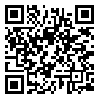Volume 30, Issue 3 (Summer 2022)
Avicenna J Nurs Midwifery Care 2022, 30(3): 211-220 |
Back to browse issues page
Ethics code: IR.MUI.RESEARCH.REC.1397.312
Clinical trials code: IRCT20091219002889N11
Download citation:
BibTeX | RIS | EndNote | Medlars | ProCite | Reference Manager | RefWorks
Send citation to:



BibTeX | RIS | EndNote | Medlars | ProCite | Reference Manager | RefWorks
Send citation to:
Naseh Z, Bahadoran P, Valiani M. Effect of Relaxation Technique on Anxiety, Stress, and Depression Scores of High-risk Pregnant Women Prone to Preeclampsia and the Physiological Indicators of Their Babies. Avicenna J Nurs Midwifery Care 2022; 30 (3) :211-220
URL: http://nmj.umsha.ac.ir/article-1-2321-en.html
URL: http://nmj.umsha.ac.ir/article-1-2321-en.html
1- Nursing and Midwifery Care Research Center, Isfahan University of Medical Sciences, Isfahan, Iran
2- Department of Midwifery and Reproductive Health, Nursing and Midwifery Care Research Center, Isfahan University of Medical Sciences, Isfahan, Iran
3- Department of Midwifery and Reproductive Health, Nursing and Midwifery Care Research Center, Isfahan University of Medical Sciences, Isfahan, Iran ,Valiani@nm.mui.ac.ir
2- Department of Midwifery and Reproductive Health, Nursing and Midwifery Care Research Center, Isfahan University of Medical Sciences, Isfahan, Iran
3- Department of Midwifery and Reproductive Health, Nursing and Midwifery Care Research Center, Isfahan University of Medical Sciences, Isfahan, Iran ,
Abstract: (4211 Views)
Background and Objective: Stress, anxiety, and depression during pregnancy have adverse effects on both mother and baby. Stress and anxiety have been reported as high-risk factors for preeclampsia. Relaxation exercises can reduce the adverse effects of high-risk pregnancies in mothers prone to preeclampsia and improve pregnancy outcomes.
Materials and Methods: This clinical trial study was conducted on 100 high-risk pregnant women referring to healthcare centers in Isfahan, Iran. The samples were randomly divided into experimental (n=46) and control (n=50) groups. Relaxation in was performed the experimental group in 16 sessions. Mean scores of stress, anxiety, and depression were measured and recorded using the Depression, Anxiety, and Stress Scale-21 Items Questionnaire. The collected data were analyzed by statistical tests in SPSS 16 software.
Results: The mean scores of stress, anxiety, and depression were obtained at 6.80, 4.49, and 5.98 in the experimental group, respectively, and 1.20, 0.94, and 1.03 in the control group, respectively. The results showed that the mean scores of stress and anxiety were significantly lower after the intervention in the test group than in the control group (P<0.05). However, the mean score of depression was not significantly different between the two groups (P>0.05). No Neonatal significant difference was observed between the two groups in the physiological indices, including mean 1- and 5-minute Apgar scores, weight, height, and head circumference (P>0.05).
Conclusion: Based on the results of this study, relaxation reduced the level of anxiety and stress among high-risk pregnant mothers. Therefore, the implementation of this technique during pregnancy is recommended for high-risk pregnant women prone to preeclampsia.
Materials and Methods: This clinical trial study was conducted on 100 high-risk pregnant women referring to healthcare centers in Isfahan, Iran. The samples were randomly divided into experimental (n=46) and control (n=50) groups. Relaxation in was performed the experimental group in 16 sessions. Mean scores of stress, anxiety, and depression were measured and recorded using the Depression, Anxiety, and Stress Scale-21 Items Questionnaire. The collected data were analyzed by statistical tests in SPSS 16 software.
Results: The mean scores of stress, anxiety, and depression were obtained at 6.80, 4.49, and 5.98 in the experimental group, respectively, and 1.20, 0.94, and 1.03 in the control group, respectively. The results showed that the mean scores of stress and anxiety were significantly lower after the intervention in the test group than in the control group (P<0.05). However, the mean score of depression was not significantly different between the two groups (P>0.05). No Neonatal significant difference was observed between the two groups in the physiological indices, including mean 1- and 5-minute Apgar scores, weight, height, and head circumference (P>0.05).
Conclusion: Based on the results of this study, relaxation reduced the level of anxiety and stress among high-risk pregnant mothers. Therefore, the implementation of this technique during pregnancy is recommended for high-risk pregnant women prone to preeclampsia.
Type of Study: Original Research |
Subject:
Midwifery
Received: 2021/04/13 | Accepted: 2022/05/14 | Published: 2022/09/5
Received: 2021/04/13 | Accepted: 2022/05/14 | Published: 2022/09/5
Send email to the article author
| Rights and permissions | |
 |
This work is licensed under a Creative Commons Attribution-NonCommercial 4.0 International License. |







 gmail.com
gmail.com